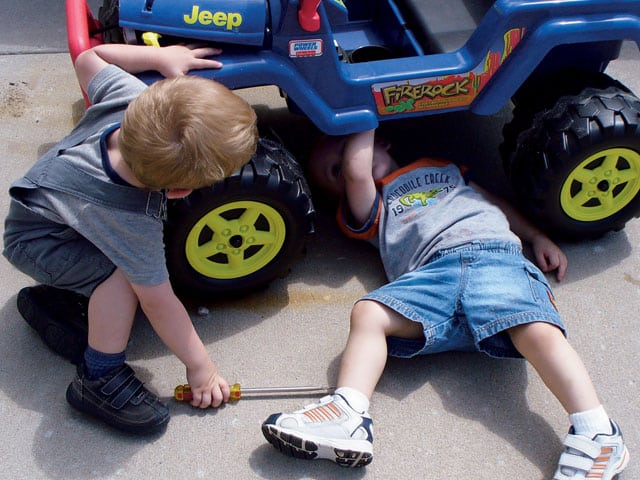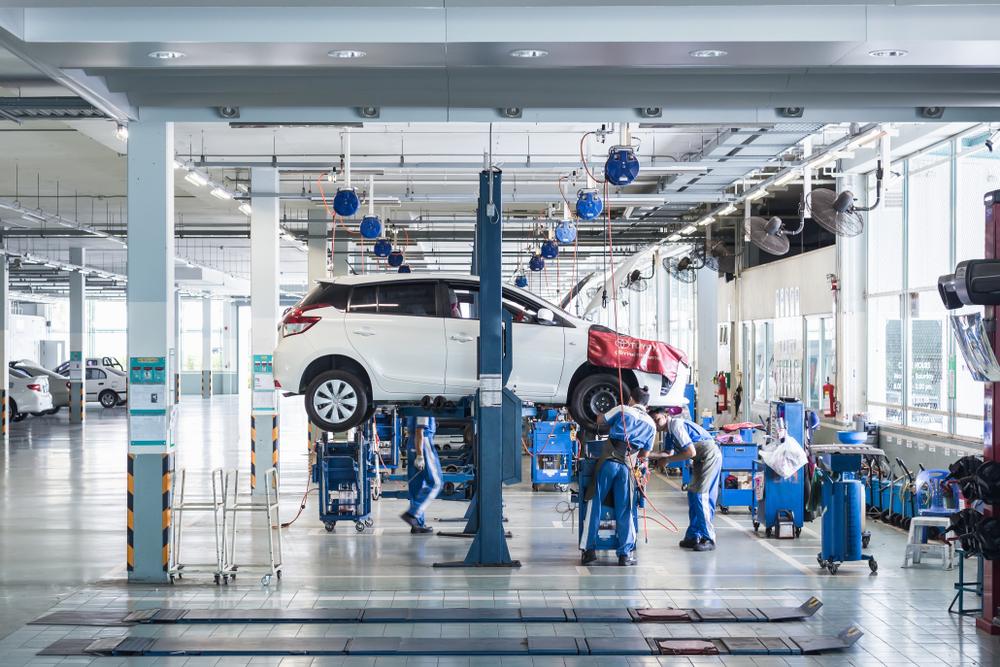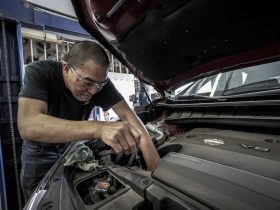We live in a world of YouTube and TikTok “how to’s” where finding out just about anything is just a search and click. The trouble is, and we’ve all been there, sometimes the person showing you how to do something doesn’t show the details, makes it look too easy, or just plain doesn’t know how to do it. The comments on a video can help there, but that isn’t a guarantee that what you’re seeing is how it’ll be when you try it.
So what do you do if you have a repair to do and you’d like to try it yourself? Here’s five questions to answer before you get started that will help you decide whether you should do-it-yourself or take it to a professional.
1 – How much time and how much cleanup will be involved?
Some jobs seem like easy things to do that will make saving money by doing a DIY on your own seem a no-brainer. Until you start adding up the little things. Changing your car’s oil, for example. Seems like a simple task and a lot of us know how to do it. And the videos you’ll find explaining the process make it look simple. Because, on its face, it is simple. But there are some catches.
To start with, you can’t just dump the used oil down the drain and throw away the bottles the new oil came in. Nor can you allow oil to spill all over your driveway or garage and you’ll probably get into even worse trouble if you let oil get all over a public road or go down public drains. So you’ll need to know how to properly capture and dispose of the used oil. That’s for starters. If the trip to purchase the replacement oil and filter, time spent making the oil change, and the resulting trip and time spent to dispose of what’s swapped isn’t worth the few dollars to have it done at a quick lube or pro shop.. Well, maybe it’s worth just spending the money instead.
This is especially true of jobs that have longer intervals between them, like transmission flushes, coolant flushes, and so forth. Weigh the cost and benefit beforehand. Many of these routine jobs are actually pretty cheap to have done professionally plus you get the added bonus of having a verifiable record of the job being done when it comes time to trade or sell the vehicle.
2 – Are you sure that the problem is what you think it is?
Diagnosis is not always straightforward or easy. Volumes of written words have been produced talking about how to diagnose various problems on various vehicles. Many home mechanics will make the mistake of just throwing parts at the problem until they find a fix. This is expensive and time-consuming. A professional is more likely to find the actual problem with proper diagnostic tools, training, and techniques. So it’s often better to ask a pro. Even if you plan on doing the repair yourself.
Most mechanics and shops will do a diagnostic for a low one-time cost or even for free. They might also notice other things that need to be done that you can work on while you’re dealing with your main problem.
One word of warning: don’t ask the parts counter person at an auto parts store to diagnose things for you. They’re rarely any more informed than you are and are not likely to have any incentive to be right or suffer repercussions if they aren’t. They sell parts. That’s it.
3 – How much of a fix is this fix going to be?
That seems like a dumb question, but often the scope of the repair is not as cut-and-dried as it may seem. Sure that YouTuber might have said that it’s a quick fifteen minute fix, but that YouTuber also has a professional lift, air tools, specialized OBD readers, and a lot of other stuff that you probably don’t have. Plus they have the power of editing to make things seem faster than they are. There’s a magic formula to YouTube creation and viewer hits and it involves how long your video is. That’s why most how-to YouTube videos are about fifteen minutes long. You get more clicks that way. More clicks equals more money.
So expect things to take a lot longer. Also realize that much of the time, the “easy fix” turns into a “weekend project” pretty quickly when other things start coming up. That bolt might strip, there might be an extra gasket required, you might accidentally drop a heavy wrench on the brake line and pinch it.. Stuff happens and the easy becomes the complex pretty quickly as a result.
4 – Do you have the tools?
Beware of the YouTube remark of “you could also do this with a..” It almost guarantees that the person making the statement hasn’t tried it with that “other tool” and that the other tool won’t actually work. A crescent wrench won’t always fit into the same place that a socket will. Most specialized tools exist because they need to exist. By design. Yes, it can easily be argued that this is a collusion between engineers and service mechanics, but that doesn’t change that it’s true.
So consider what buying those extra tools will cost you and whether you’re ever going to need those tools again. Every one of us who has done DIY work owns a puller, specifically-sized torque wrench, or specialized socket that we used one time and that now sits in a drawer somewhere gathering rust.
5 – How safely can you do the job with your current tools and abilities?
Yes, one of the fun parts of DIY mechanics is that we get to find creative ways to do things or get around problems. But that creative solution can quickly become a serious safety hazard or painful trip to the emergency room. It’s probably better not to test the strength of your carport’s framing by using it as an engine hoist or try the staying power of those cheap jack stands from the discount store. If a job requires a lift, you should have a lift. No number of cinder blocks and creative tree stump use will bypass that safely.
If you value life and limb, you won’t proceed like you’re on the next episode of Jackass.
So how’d you do?
Did you answer these questions in a way that means you can probably do this job without it costing you more than a professional will? Sweet! You’re still in DIY territory. Turn some wrenches.







